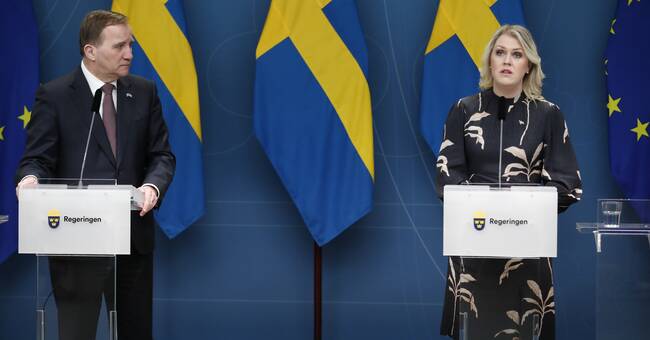A year ago, the opposition gathered in the Riksdag and ran over the government for more money to the country's municipalities.
Now it seems to be time again.
On Thursday morning, the Moderates, the Left Party and the Christian Democrats presented an initiative for an extra amending budget with proposals for an additional SEK 4.35 billion for elderly care during the current year.
The government and the January parties have already decided on an addition of four billion kronor this year.
Now M, V and KD want to more than double that investment.
The Sweden Democrats' party leader Jimmie Åkesson has announced that his party also supports the proposal.
Thus, a majority is formed for it in the Riksdag.
Irritating bile fever on S
At the same time, it is of course irritating to the Social Democrats that the opposition takes the political initiative in an issue that is traditionally seen as a Social Democratic heart issue.
This is also an important reason why a fairly diverse opposition can agree on this issue.
The parties want to try to give the government a slap in the face and choose a current issue where one can actually agree.
The Corona Commission's criticism of elderly care thus also becomes an argument for requesting quick decisions from the Riksdag.
The new normal
At the same time, it has consequences that M, SD, V and KD now agree on a budget measure that will also apply permanently, ie even after the next election.
This means that even in the event of a change of government, a possible M / KD government will need to cooperate with the Left Party on this very issue!
The Social Democrats will of course not oppose this initiative in the Riksdag, but they will accuse the opposition of not being credible and of engaging in political play.
With repeated attempts by the opposition in the Riksdag to enforce different budget decisions, what is usually called a cohesive budget process is also affected, ie different reforms and proposals are weighed against each other in a common position.
At the same time, it is obvious that with a situation where the government lacks a majority, this action is likely to be the new normal.
Ultimately, it is always the parliamentary majority that decides.
No acute shortage of money
The question is, however, how important it is for the country's municipalities to quickly get this extra money for elderly care.
According to the organization Sweden's Municipalities and Regions, SKR, the country's municipalities are doing better than in a very long time.
Last year, the total surplus was SEK 30 billion - largely due to generous government support.
The municipalities, which are responsible for elderly care, do not seem to have any acute shortage of money.

